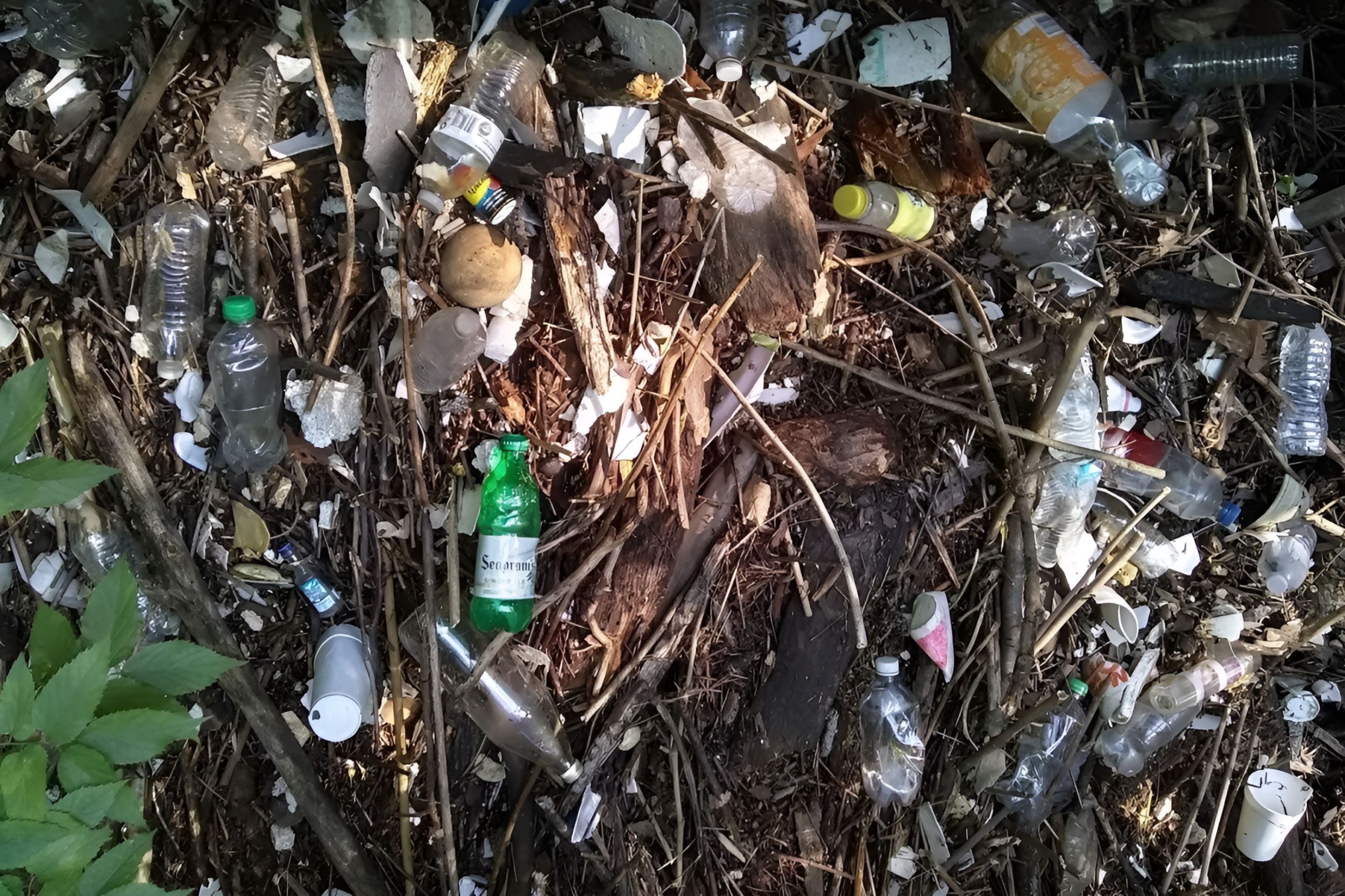Bill of the Day: Addressing Virginia’s Plastics Crisis
Updated on March 9th, 2024.

Litter along Reedy Creek, Richmond. Image credit: Kenny F.
Why Act Now to Address Plastic Pollution?
Virginians continue to consume plastics at an alarming rate. Our reliance on single-use plastic items continues a cycle of production and mismanaged disposal, further increasing plastic pollution in Virginia’s ecosystems and environment. Furthermore, as plastic breaks down over years, it degrades into microplastics, which are harder to monitor and to clean up. These plastic items contain additives and toxic chemicals that leach into our food, drinking water, and have even been found in our lungs, which can cause various types of cancers and respiratory problems. Plastics also harm our wildlife through entanglement and ingestion, impacting birds, fish, mammals and destroying diverse habitats. Overall, our exposure to plastic is threatening the well-being of both Virginians and our wildlife.
Despite our efforts to monitor and reduce plastic pollution, it is not enough. Recycling efforts have not reduced single-use products nor have they held producers responsible for their role in plastic pollution. Many plastic manufacturers continue to misuse the recycling symbol, making their products seem sustainable when they’re not. This adds non-recyclable waste to our recycling system, leading to mismanaged disposal and more plastic pollution. This interferes with our recycling system and makes Virginians unaware of their contributions to the plastic pollution crisis.
Several pieces of legislation proposed in the General Assembly can ensure that Virginia better understands the impact of plastic pollution on our environment and our health. You can take a deeper dive into reducing plastic pollution in Our Common Agenda. To learn more, read our “Reducing Plastics, Litter, & Marine Debris” policy paper.
Plastic Bills to Support in the General Assembly
Legislators have introduced several bills and budgets amendments that address measures to address and reduce plastic pollution in the Commonwealth:
(Delegate Betsy Carr) Advances the ban on polystyrene container use from 2028 to 2025 for retail food establishments with 20 or more locations, and from 2030 to 2026 for smaller establishments.
(Delegate Nadarius Clark) Directs the Commissioner of Health to form a work group to study and recommend measures for reducing microplastics in the Commonwealth’s public drinking water.
(Delegate Joshua Cole) Prohibits manufacturers from using the recycling symbol on products unless it is actually recyclable in that region. This bill will also require Virginia to compile and share a list of recyclable materials in the Commonwealth.
(Delegate David Bulova) Establishes the Virginia Recycling Development Center to advance market development and processing for recycled materials. This bill also creates the Virginia Recycling Development Center Advisory Committee, establishes reporting requirements, and creates the Recycling Market Development Fund to be used for the Center.
(Delegate Paul Krizek) Directs the Department of Taxation and the Department of Environmental Quality (DEQ) to study tax policy options for reforming the litter tax.
(Delegate Paul Krizek) $50,000 to direct the Department of Taxation and DEQ to study tax policy options for reforming the litter tax.
(Delegate Nadarius Clark) $114,000 to require the Commissioner of Health to form a work group to study and recommend measures for reducing microplastics in the Commonwealth’s public drinking water.
Take Action
Virginia must act now to create and update policies and laws that will keep human-made waste out of Virginia’s streams, rivers, and coastal waters. In doing so, we can begin to reduce its threat to our wildlife, environment, and public health.
